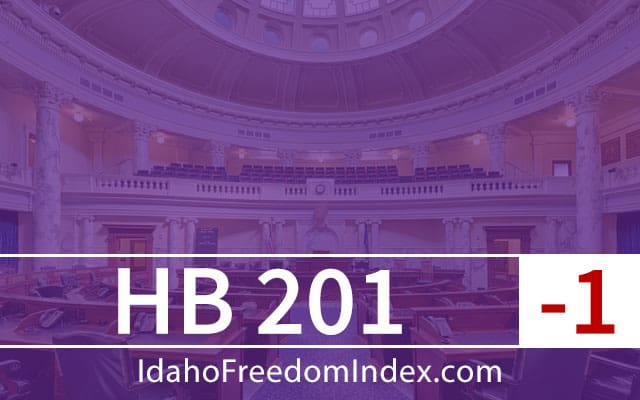


Bill description: HB 201 would make an exception for small taxing districts by letting them increase their budgets beyond the statutory limit on how much their budgets can grow in any one year.
Rating: -1
Does it in any way restrict public access to information related to government activity or otherwise compromise government transparency or accountability? Conversely, does it increase public access to information related to government activity or increase government transparency or accountability?
HB 201 would allow small, non-school, taxing districts which have attempted to take on substantial debt in 2018 or 2019 to increase their annual budgets beyond the three percent cap that is currently in statute. To qualify for this exemption, a district must:
If a taxing district meets the criteria above, its officials could increase their annual budget to cover the court-approved project, which they could pay upfront or over time using bonds. The amount above the regular cap could not exceed one-tenth of 1 percent, or $100 per $100,000 of the value of all assessed property in the district.
HB 201 would bypass both the traditional budget cap and the input voters should have in a project which their district takes out debt for.
(-1)


